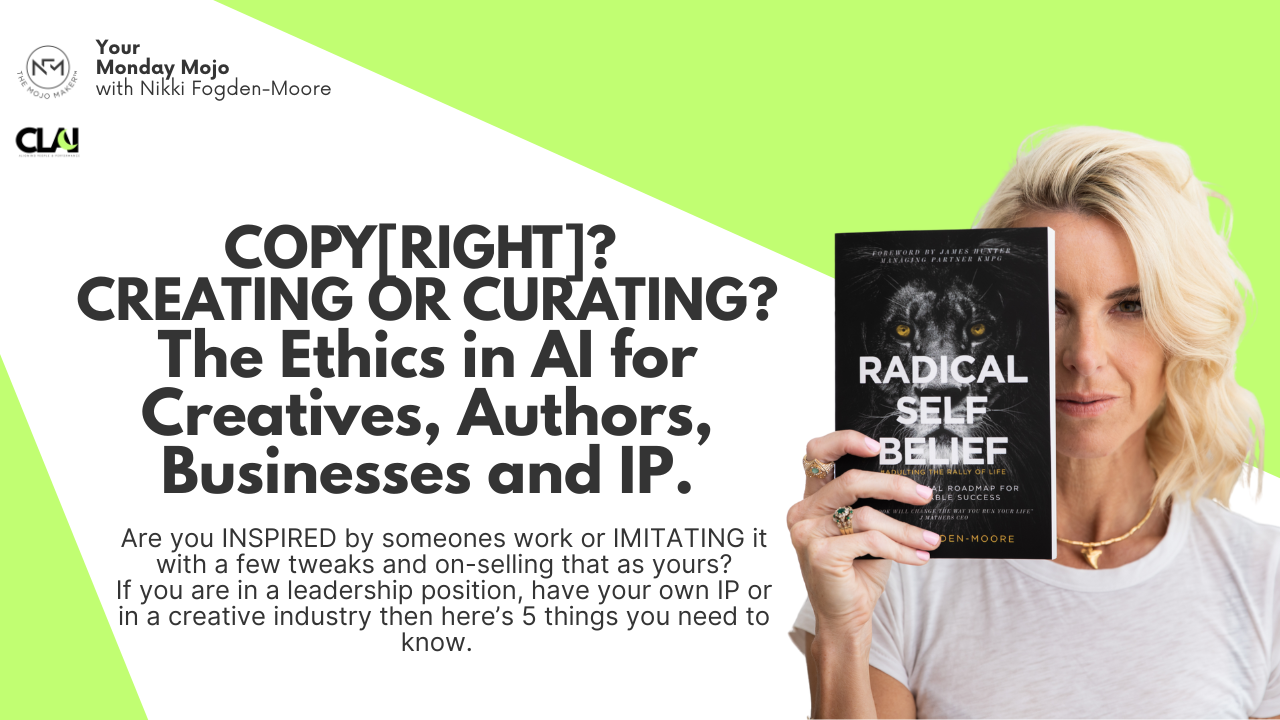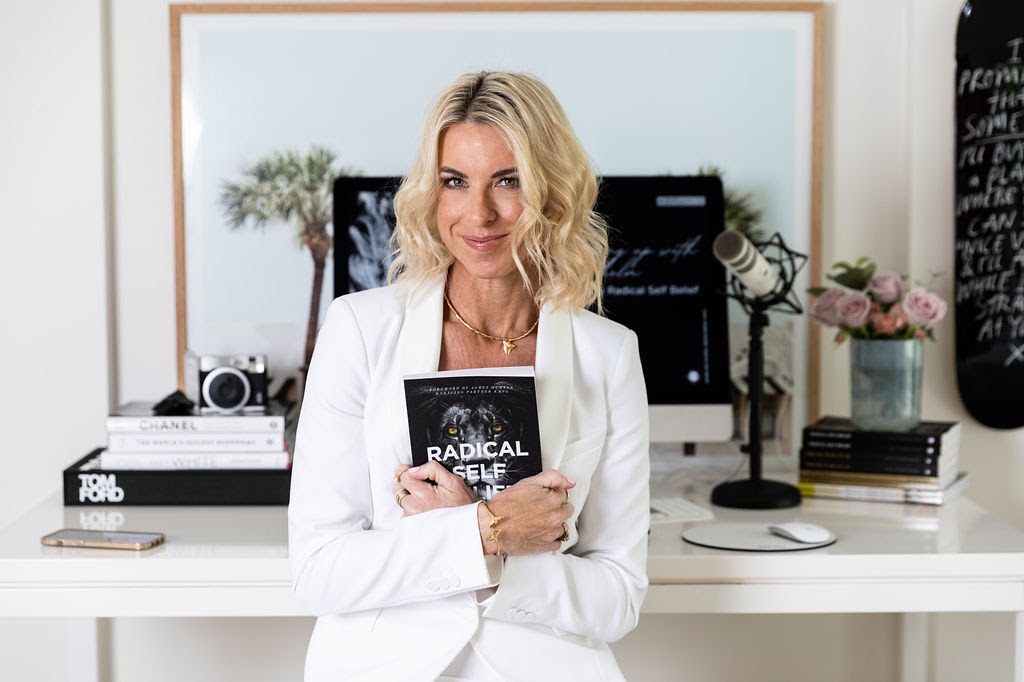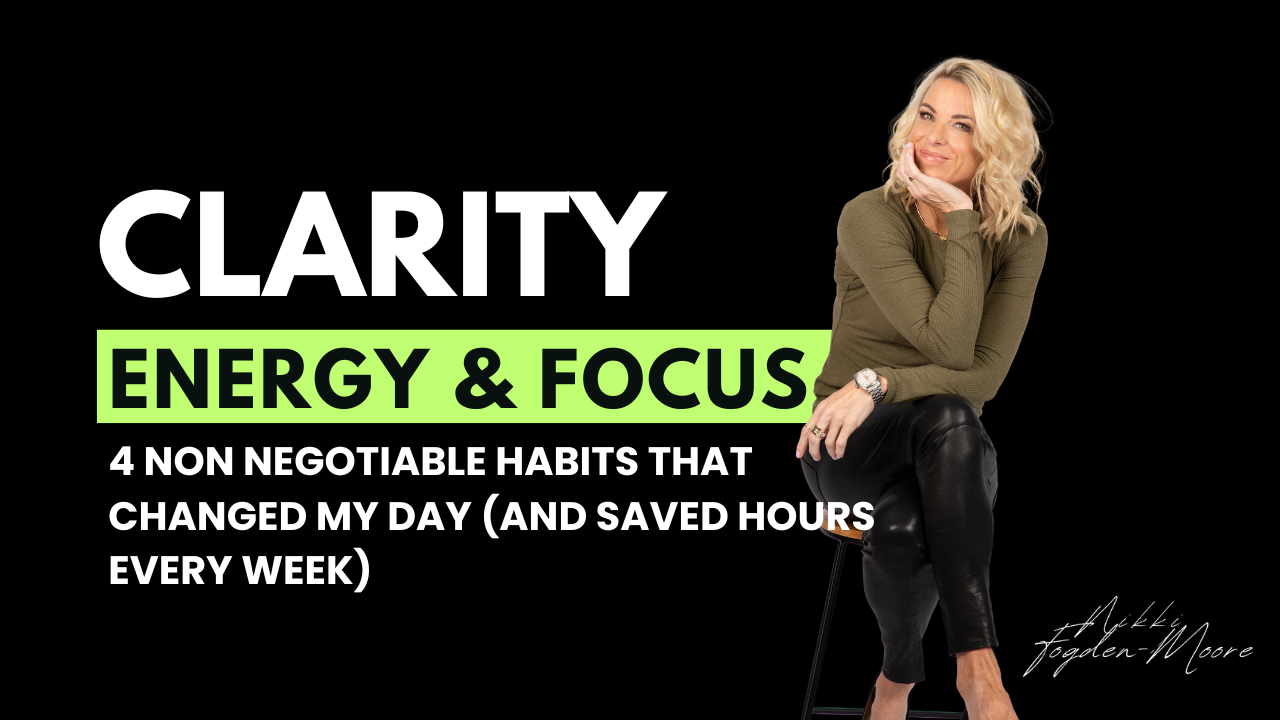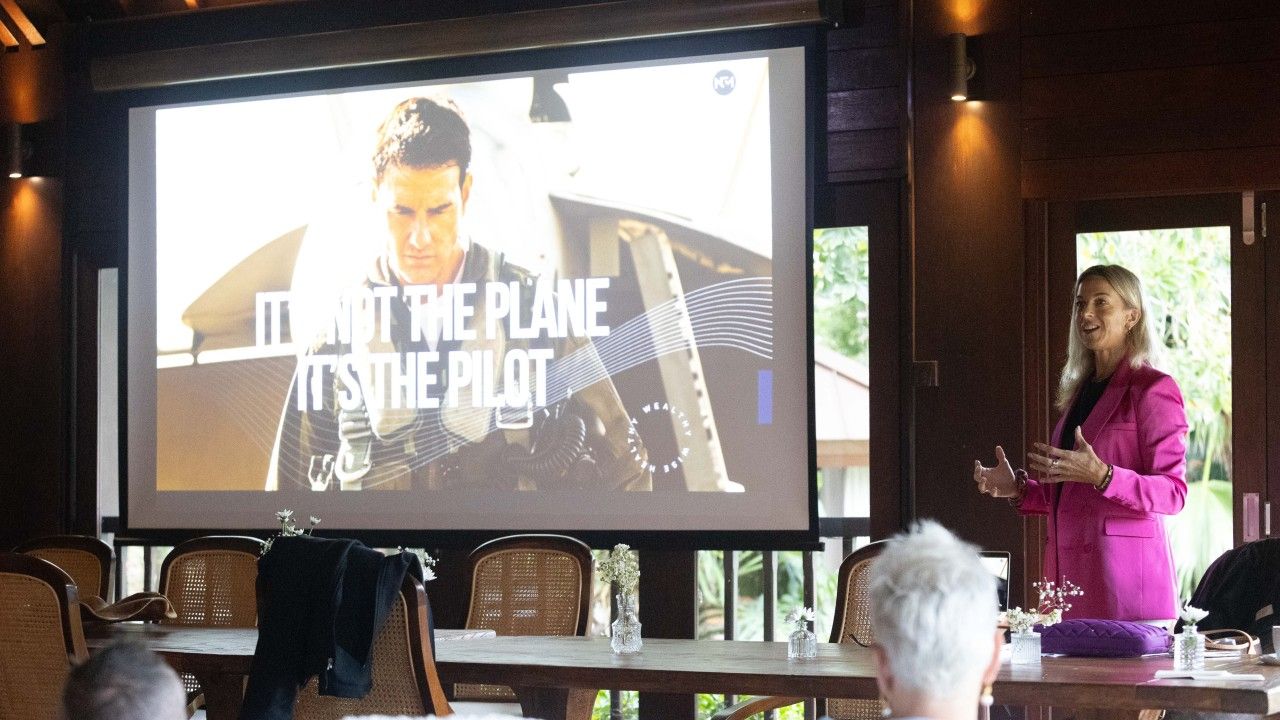Copy-Tweak-Paste Culture: Is Originality at Risk in the Age of Digital Thought Leadership?
Jul 17, 2025
When Does Inspiration Cross the Line? A Thought on Copy-Paste Culture and Real IP.
Trigger warning. This will ruffle a few feathers - however I believe this conversation really needs to be had and as leaders it is up to us to do the right thing, not always the most convenient.
If you think laws and policies around IP, privacy and content copyright are not going to catch up at some point - then I call that a bit delusional. Taking short cuts now will at some point cost you in the future.
Content spreads faster than ever, and as a coach to business owners and founders I believe it's time leaders are being called to rethink the ethical line between inspiration and imitation — and the real cost of not protecting intellectual property.
Are you a true thought leader if you're remixing someone else's content and calling it your own?
This is the wild west right now - it's a whole new landscape we are operating in - but time and time again I come back to the discussion three old school values my father taught me about business and they underpin everything I do, and the clients who I see run sustainable businesses no matter what - they do the same:
- Ethics
- Integrity
- Transparency.
Regardless of tech - the way to do business is going to be stronger than ever through relationships.
Youtube announced as of July 10 no AI produced content that replaces human led channels can be monetised. That excites me!
For business, content is currency. Frameworks, models, workbooks, and insights are no longer locked away in dusty boardrooms or paywalled journals — they’re being shared, screen-shotted, and spun into carousels and keynote decks around the globe.
And while this democratisation of knowledge is powerful — it’s also raising a critical question: At what point does inspiration cross into imitation?
This isn’t just a matter of etiquette. It’s a question of ethics, originality, and what we value as creators, educators, and leaders.
1. The Remix Economy Has No Boundaries
Remixing is nothing new. In music, art, and design, it’s a mark of homage and creative evolution. But there’s a key difference: when a musician remixes a track, the original artist is credited. The foundation is acknowledged.
In today’s business landscape, however, that attribution is often absent. Entire strategies, captions, or program structures are repurposed — sometimes unknowingly, sometimes carelessly, often without credit.
The result? A dilution of real thought leadership. And a quiet erosion of creative trust.
2. Where the Line Gets Blurry
Reverse engineering — the process of learning by deconstructing — is valuable. It fuels learning, development, and new ideas. But the line between reverse engineering and replication is thin, and getting thinner.
When is it learning, and when is it lifting?
When does “being inspired by” become “borrowing without permission”? And perhaps most importantly: If everyone is remixing, who is actually creating?
3. A Culture Shift Is Needed
Thought leaders, educators, and founders often spend years developing their intellectual property. It’s not just content — it’s context, craft, and experience distilled into repeatable, valuable tools.
Yet in this world of digital marketing and personal branding, there's growing pressure to produce — daily posts, weekly downloads, reels, lead magnets. This urgency has created a dangerous trade-off: volume over value.
In a recent key note for a large creative agency I led with:
“When we stop attributing the original source, we stop encouraging real creativity. And eventually, creators stop sharing. Not because they don’t want to give — but because they’re tired of seeing their work reskinned and renamed without a second thought.”

4. The Ethical Role of Leaders
This isn’t about legalese or copyright infringement (though that matters too). It’s about creative leadership — and the responsibility that comes with it.
Business leaders, educators, influencers, and founders have an opportunity right now to raise the bar:
- Acknowledge the source — publicly and respectfully.
- Build upon ideas with genuine insight, not just word swaps.
- Collaborate openly, where credit is shared and creation is joint.
- Contribute something original — even if it takes more time.
True thought leadership is about adding value, not echoing what’s already out there.
Why It Matters Now
We are oversaturated with content, originality has become a competitive edge — and a marker of integrity.
When we prioritise quantity over originality, we not only weaken our own authority, we also reduce the collective standard of thought leadership.
More than ever, trust is built through transparency, not trickery. Yes AI can replicate tone, structure, and even entire essays — the real currency lies in what can’t be copied: lived experience, earned insight, and ethical leadership.
In a nutshell ask yourself and your team these core questions:
- At what point does repurposing become repackaging?
- At what point does inspiration become extraction?
- At what point does this culture stop us from actually sharing — because we know it’ll just be copy-pasted?
As mentioned above: When an artist remixes a song, the original is credited. It’s collaborative, not covert. But in business and content, we’re seeing a growing trend where frameworks are duplicated, captions are lifted, and even full programs are subtly rebranded — without context or contribution.
It’s not always malicious. Sometimes it’s lazy. Sometimes it’s unintentional. But it’s happening more often than we’re talking about.
Let me be clear: YES Be inspired. YES Learn from others. YES Reverse engineer ethically - always attribute who inspired you, where you can.
My Final Thought: Inspiration is powerful. But creation is brave. And to credit someone is free. To cut corners will cost you later.
The next generation of leaders is watching. Let’s give them something worth following — not just reposting.
Would love your thoughts on this. I know it's going to peeve a few people off who want to take the easy road, but there's something brewing now where being original, transparent and reliably able to deliver on what you promise will hold so much value it's worth amplifying.
In the words of Ron Burgundy, "Stay Classy".
Nikki
Get in touch: www.nikkifogdenmoore.com
Nikki Fogden-Moore is a globally recognised strategist, author, and founder of The Mojo Maker® Group, ACCELER8TE™, and ClaraLuna AI—a human-led AI platform built to support conscious leadership and performance at scale. With over two decades across brand strategy, elite sport, and executive coaching, she’s the author of Vitality, Fitpreneur, and Radical Self-Belief, and creator of frameworks like Winning Weeks®, FounderFITness, and the SuperLeaders podcast, book and certified programs. Nikki works with CEOs, founders, and teams to align commercial outcomes with personal sustainability. Known for her clarity, intelligence, and impact, she empowers leaders to navigate complexity with purpose, performance, and aligned innovation.






